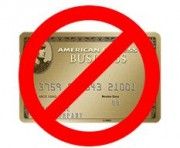Labeling and dosage standards. Rules on waste disposal, ownership changes and third-party testing. Application fees ranging from $250 to $500 for marijuana retailer, producer and processor licenses.
These are some of the proposed requirements on the budding adult-use cannabis industry in Washington, released this week by the state’s Liquor Control Board. The draft regulations offer the first real glimpse of what entrepreneurs will face if they want to tap the recreational marijuana market.
Voters passed a ballot measure – Initiative 502 – in November legalizing marijuana for adults. The state plans to start issuing licenses by Dec. 1, and retail shops will then open in earnest early in 2014.
Potential business owners, as expected, will likely have to jump through numerous hoops and meet many requirements to apply for and obtain a license to grow, process and sell marijuana and infused products.
The draft rules are comprehensive, getting down to the nitty-gritty on everything from the “serving size” of cannabis and penalties/fines for rule violations to the exact language of warning labels that must be placed on infused products and signs that retailers must post on their premises.
Some are quite similar to the final regulations Colorado recently adopted – including rules on security and inventory tracking – but others are very different, such as a proposed three-month residency requirement in Washington for marijuana business licenses vs. two years in Colorado. Also, retail stores would not be able to grow their own marijuana in Washington State, while in Colorado cannabis shops will have to cultivate at least 70% of their inventory until the fall of 2014.
Although there’s still room for debate – Washington will accept public feedback until June 10 and then start the final rule-making process shortly thereafter – the overall proposed framework and many of the recommended regulations will likely stick.
The response from the cannabis community has been largely favorable. Many consultants and law firms were flooded with queries yesterday from entrepreneurs who want to lay the groundwork for applications and current dispensary owners who want to move into the recreational side of the industry.
“I didn’t leave work until about 10:30 p.m. last night because I was fielding calls and emails from MMJ operators who want to transition to (the adult-use market) and want to get started on their application planning strategy now, especially after seeing all of the detailed – and complex – requirements from the draft rules,” said Hilary Bricken, an attorney with CannaLaw Group in Seattle. “So, I think the overall reaction is pretty positive. Those who know how to comply with state law and obey regulations will ultimately prevail and are happy with the barriers to entry, and those who don’t won’t receive a license.”
Bricken said this is a “great start” to the process, adding that she only takes exception to a few proposed rules.
“It’s clear that the (liquor board) put tremendous effort into this draft, and that didn’t come without robust debate and transparency with the public,” she said. “At Canna Law Group, there were zero surprises for us. Our lobbying efforts indicated to us that this was going to be a heavy-handed regulatory effort and the liquor board has done just that with a keen eye on security and license eligibility.”
Here’s a sampling of the many requirements, rules and provisions suggested by the state:
– Marijuana sales – both retail and wholesale – would be taxed at a rate of 25%.
– Retail stores could not operate between 2-6 am.
– Consumers 21 and older could buy up to one ounce of marijuana, 16 ounces of infused product in solid form or 27 ounces of infused product in liquid form in a single transaction at a retail store.
– Customers would need to show proof of age via valid ID such as a passport or driver’s license.
– The state would levy a $250 application fee for producers, processors and retailers and a $1,000 fee for the actual license and annual renewal, and a $500 application fee for a dual producer/processor license and $2,000 for the actual license and annual renewal.
– Each applicant would need to submit a detailed operating plan covering everything from security to employee qualifications and training. They would also need to meet minimum insurance requirements.
– Local governments could approve or deny a retail shop or the proposed location of one.
– A single serving of marijuana-infused product would amount to 10 milligrams of active THC or Delta 9, and products could have no more than 10 servings or 100 milligrams of active THC of Delta 9.
– Marijuana and cannabis-infused products would have to be stored behind the counter or another barrier to ensure that the customer does not have direct access to them.
– Containers and packaging would need to protect the product from contamination and could not impart any toxic or deleterious substance to the useable marijuana or cannabis product.
– All marijuana and related products would have to be tested through third-party, certified labs, which must employ a scientific director with an advanced degree in biological or chemical science and have professional experience.
– Retailers would have to disclose the name of the accredited third-party lab and test results for cannabis and infused products if the customer requests such information.
– Marijuana could not be labeled as organic unless it is certified as such by the Washington State Department of Agriculture.
– Cannabis and infused products would need to contain labels or include accompanying material with the following warnings: “For use only by adults 21 and older. Keep out of reach of children;” “Warning: Smoking may be hazardous to your health,” “There may be health risks associated with consumption of this product” and “Should not be used by woman that are pregnant or breast feeding.”
– Labels on containers or packaging at retail stores would have to include other detailed information, such as the business or trade name and state unified business identifier number of the licensees that produced, processed and sold the usable marijuana; the lot number; the concentration of THC, THCA, CBD, CBDA, CBN, CBG; and the net weight.
– Cannabis businesses would have to use standardized scales for weighing marijuana and products.
– Retail stores could have no more than one sign – up to 1,600 square inches – with the business name visible to the general public either in a window or on the outside of the premises.
You can provide input on these proposed rules by emailing the state liquor board at rules@liq.wa.gov, faxing your comments to 360-664-9689 or mailing them to the Rules Coordinator, Liquor Control Board, PO Box 43080, Olympia, WA 98504-3080.




